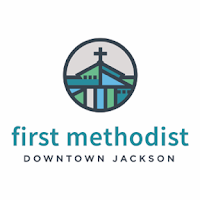By the rivers of Babylon we sat and wept
when we remembered Zion.
There on the poplars
we hung our harps,
for there our captors asked us for songs,
our tormentors demanded songs of joy;
they said, “Sing us one of the songs of Zion!”
How can we sing the songs of the Lord
while in a foreign land?
If I forget you, Jerusalem,
may my right hand forget its skill.
May my tongue cling to the roof of my mouth
if I do not remember you,
if I do not consider Jerusalem
my highest joy.
Remember, Lord, what the Edomites did
on the day Jerusalem fell.
“Tear it down,” they cried,
“tear it down to its foundations!”
Daughter Babylon, doomed to destruction,
happy is the one who repays you
according to what you have done to us.
Happy is the one who seizes your infants
and dashes them against the rocks. - Psalm 137
So… it’s ok to take the babies of our enemies and bash their little bodies against the rocks? I mean, it’s in scripture, right? Psalm 137 verse 9!! That means God says it’s ok, right?
No. Like many of us pastors and theologians must occasionally say: it’s all about context. Psalm 137 is a psalm of lament – expressing grief, anger, struggle, and regret. There are 60-some individual and communal psalms of lament in the bible, over one-third of the psalms! Of the lament psalms, Martin Luther once said, “Where do you find deeper, more sorrowful, more pitiful words of sadness than in the psalms of lamentation? There again you look into the hearts of the saints, as into death, yes, as into hell itself.”
The 137th isn’t permission to bash your opponents. But it DOES give permission to vent your feelings and be honest with God and each other – even to a tune (the psalms were songs sung in worship). There’s no permission to act upon the violence you feel, but there is permission to admit that the angst you feel, the venom you want to spew, the profound sadness that wells up in an audible wail – it’s real.
I’ve been there in my life. Twice. My mother died on this day, September 11, 2000, twenty-five years ago. Mom was not the best mother in the world. As I realized later in life, she was depressed, she was anorexic, she had suffered serious trauma in a car accident, she grieved beyond what was normal and healthy when her father (a coal miner) died, and… she did the best she could. I didn’t grieve at her funeral; I was relieved when it was over and extended family gathered and ate together. But a month later at an out-of-state retreat - during a healing service – the tears welled up. The tears turned to sobs. And the sobs turned to wailing. I know I scared the hell out of the folks (who knew me) sitting around me, and yet they were quietly comforting, letting me be but also present with the soft touch of hands on my shoulders. They didn’t tell me it was all right – they didn’t tell me anything, and they knew nothing needed to be said.
It happened a year to the day later: September 11, 2001. I went early that morning to have breakfast with my father. On the drive back home I heard on the radio that one of the Twin Towers had collapsed, the other one had been hit and was burning. My dad called. “Yes, I just heard it,” I said. And “You’re right, Pop… we won’t ever forget this date, for sure.”
I hung up. And then I turned off the radio. I pulled over, and the tears welled up. And the tears turned to sobs. And the sobs turned to wailing.
I know that I can’t lament every day like that. But I know that there are people who have reason to lament like that every day. Every hour. I sometimes feel twinges of guilt that I don’t cry over tragedies. Church members lose loved ones, or share with me that they have cancer, or a terminal disease, or are getting a divorce, or that they’ve lost a job. Members who share with me the moral wounds that won’t heal from military service and war, a police officer who had to use deadly force and resigned because of his grief, a couple who is ending a pregnancy because their baby is dead. Sadly, those aren’t all rare occasions – they are part and parcel of what I do, and - more to the point – part of the human condition.
Wars. School shootings. Fresh in my memory are politicians and their family members put in harm’s way, shot and/or killed, or having shots aimed at them. People gunned down in the streets. I can call some of them by name: two attempts on President Trump’s life, an attempted arson when Governor Josh Shapiro and family were asleep, former Minnesota house speaker Melissa Hortmann and her husband Mark killed, and Minnesota Senator John Hoffman and his wife Yvette shot and injured by the same man. And yesterday a sniper attack that killed Charlie Kirk leaving his family without a husband and father, along with a school shooting in Colorado.
Those are things I can name. And along with those, countless deaths around the world that I didn’t know about but just looked up in news headlines: angry protesters set Nepal’s parliament and supreme court buildings on fire after ousting their prime minister. Israel attacked Hamas leaders in Qatar. Sixty people killed in the Congo by a machete attack during a funeral. I should lament just as much about those things, if I truly take Jesus at his word over who our neighbor is.
Last night one of my best and oldest friends messaged me. He too was lamenting over yesterday and how we can’t get our love to outweigh our anger: “It’s not that loving has been tried and failed. It’s that it’s never really been tried before.” Which reminded me of the G.K. Chesterton quote in his book What’s Wrong with the World: “The Christian ideal has not been tried and found wanting. It has been found difficult; and left untried.”
So, I pause. I lament. I try not to become incapacitated – because I can’t live that way. I also pray not to become indifferent. I pray for hope and assurance. Most of all… I pray that I don’t want to dash the enemy’s babies against the rocks, even though I feel like it. If I love Jesus and claim to be a disciple, I’m not allowed. I can’t. I won't.
Sky+












